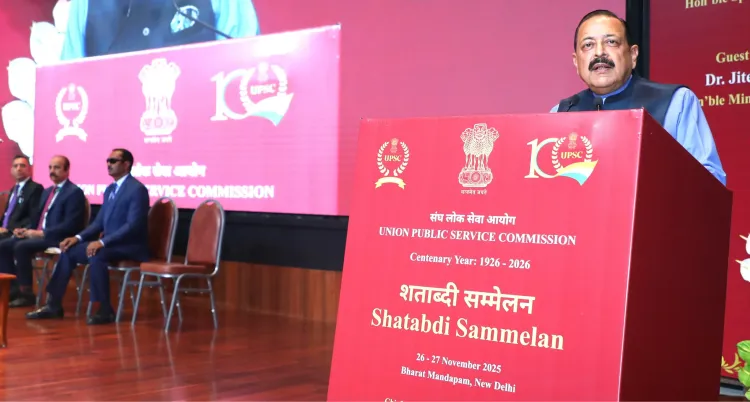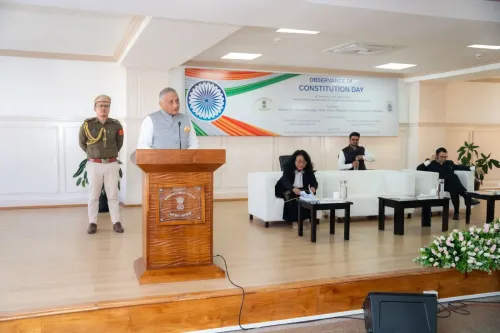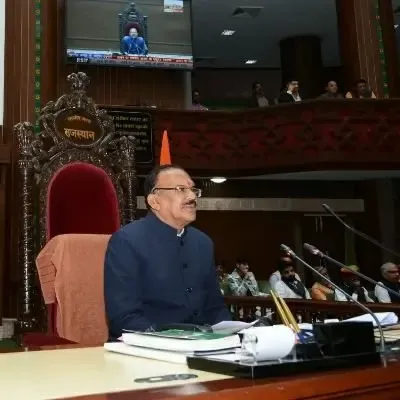Is UPSC the Guardian of India’s Steel Frame of Governance?

Synopsis
Key Takeaways
- UPSC celebrated its centenary as a vital institution in Indian governance.
- Dr Jitendra Singh emphasized the need for UPSC to adapt to global challenges.
- The 'Pratibha Setu' portal aims to connect candidates with job opportunities.
- 2025 marks significant anniversaries related to India's civil services.
- Continued evolution of UPSC is crucial for addressing modern governance challenges.
New Delhi, Nov 26 (NationPress) Union Minister Dr Jitendra Singh commended the Union Public Service Commission (UPSC) as the “protector of India’s steel frame of governance” on Wednesday.
During the centenary festivities of this esteemed recruitment organization, the minister lauded its century-long dedication and urged it to evolve in response to emerging global challenges.
Dr Singh highlighted that the commission has stood as a bastion of integrity, fairness, and transparency throughout both the pre- and post-Independence periods.
He recalled Sardar Vallabhbhai Patel’s characterization of the Civil Services as the “Steel Frame of India”, affirming that the UPSC has fulfilled its duty as the custodian of this steel frame.
The minister pointed out that 2025 is set to commemorate several significant milestones, including the 150th birth anniversaries of Sardar Vallabhbhai Patel, Bhagwan Birsa Munda, and the 125th birth anniversary of Dr Syama Prasad Mookerjee, along with 150 years of the composition of Vande Mataram, making it a year deeply connected to India's cultural, constitutional, and national heritage.
Dr Singh also mentioned various recent initiatives by the UPSC, such as the ‘Pratibha Setu’ portal, designed to connect candidates who have passed the Civil Services examination stages but have not made it to the final selection with private sector and institutional job opportunities.
Lok Sabha Speaker Om Birla encouraged the Commission to continuously adapt to new global realities, including challenges posed by artificial intelligence, climate change, cybersecurity, and national security.
“The leadership emerging from this institution has guided India’s executive framework with sensitivity, ethics, and a commitment to public service. As UPSC approaches its second century, it will persist in shaping the future of governance in India,” he said.
The UPSC serves as India’s foremost constitutional organization tasked with recruiting top government officials through a transparent and competitive examination process.









